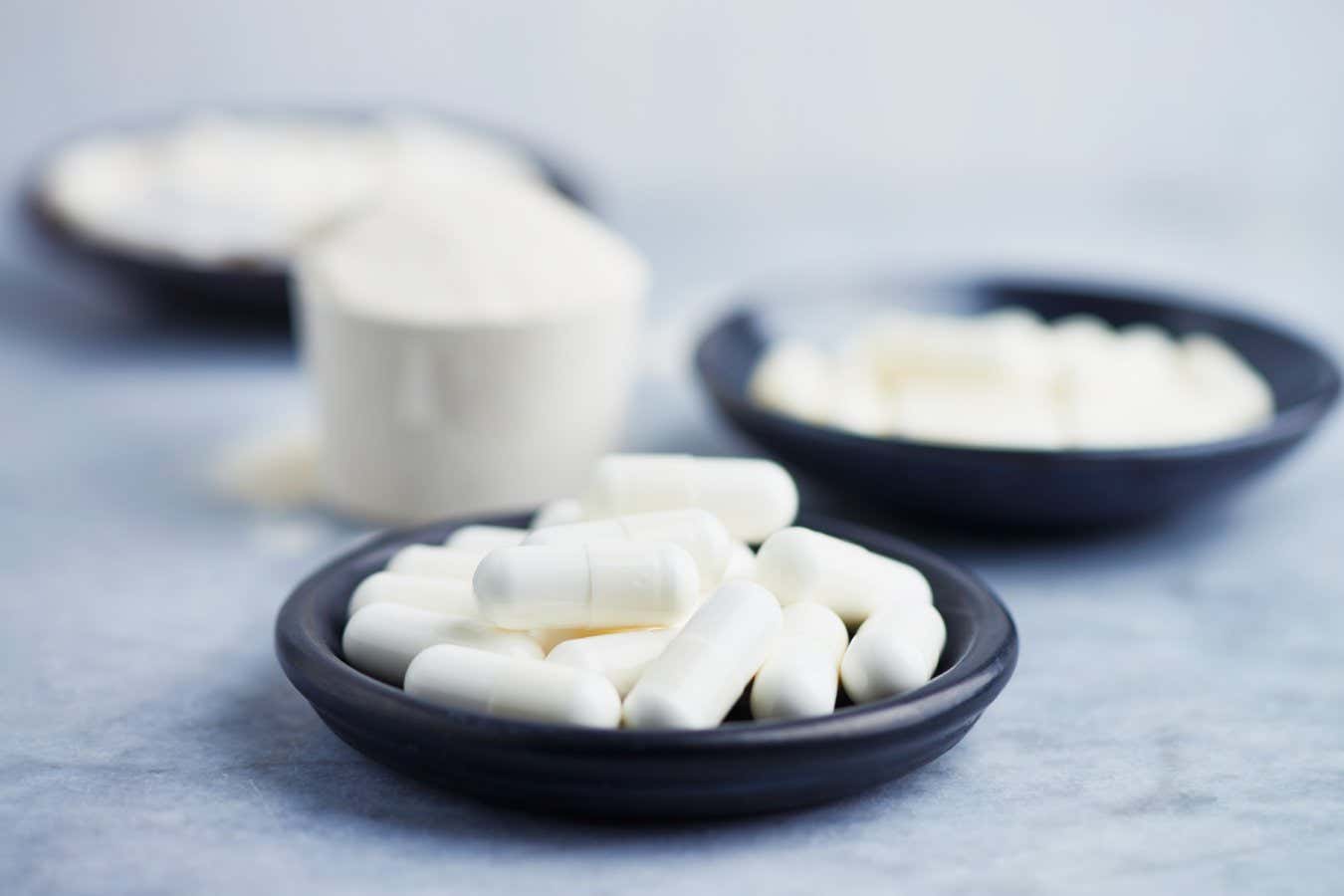Taurine supplements have previously been found to extend the lifespan of monkeys and mice, but a new study in humans shows that the amino acid doesn’t decline with age
By Grace Wade
5 June 2025
Taurine supplements have been considered promising for delaying ageing, but that may not be the case
Shutterstock / Eugeniusz Dudzinski
The amino acid taurine was once thought to decline with age, and animal research suggested that taurine supplements could delay ageing. But a new study shows that the decline doesn’t happen consistently. In fact, taurine levels tend to increase in people over time, suggesting that low levels of the nutrient aren’t a driver of ageing.
Read more
Restoring the brain’s mitochondria could slow ageing and end dementia
Previous research has shown that taurine concentrations decline in men as they age and that people with higher taurine levels at 60 years old tend to have better health outcomes. This, along with evidence that taurine supplements extend lifespan in mice and monkeys, suggested that low taurine contributes to ageing.
Advertisement
The trouble is that taurine fluctuates in response to other factors too, such as illness, stress and diet – therefore, declines in this key amino acid may not be due to ageing. Maria Emilia Fernandez at the National Institute on Aging in Maryland and her colleagues analysed taurine levels in 742 people between 26 and 100 years old. The participants, about half of whom were women, didn’t have underlying health conditions and provided three to five blood samples between January 2006 and October 2018.
On average, taurine levels were almost 27 per cent higher in women at 100 years old than at 26 years old and rose about 6 per cent in men between the ages of 30 and 97. Similar results were seen in 32 monkeys that underwent three to seven blood draws between 3 and 32 years of age. Between 5 and 30 years of age, taurine levels rose 72 per cent in female monkeys and 27 per cent in male monkeys, on average.
Together, these findings indicate that taurine levels are not a reliable indication of ageing. What’s more, taurine levels also varied widely between people and even within individuals over time, suggesting that other environmental factors influence them, says Fernandez.
